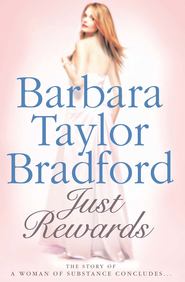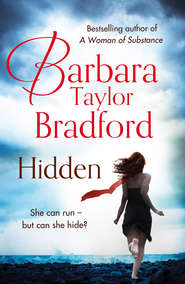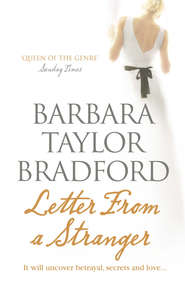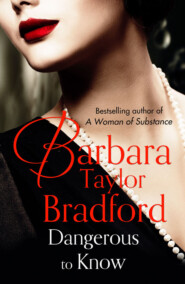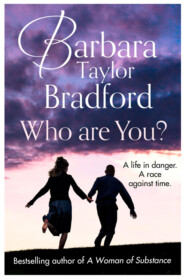По всем вопросам обращайтесь на: info@litportal.ru
(©) 2003-2024.
✖
Heirs of Ravenscar
Автор
Год написания книги
2018
Настройки чтения
Размер шрифта
Высота строк
Поля
Chapter Sixty-Three (#)
EPILOGUE
BIBLIOGRAPHY
ACKNOWLEDGEMENTS
ABOUT THE AUTHOR (#litres_trial_promo)
BOOKS BY BARBARA TAYLOR BRADFORD
ABOUT THE PUBLISHER (#litres_trial_promo)
Part One (#u1d994e54-7FFF-11e9-9e03-0cc47a520474)
The Deravenels (#u1d994e54-7FFF-11e9-9e03-0cc47a520474)
Dangerous Triangle (#u1d994e54-7FFF-11e9-9e03-0cc47a520474)
Edward was of a gentle nature and cheerful aspect: nevertheless should he assume an angry countenance he could appear very terrible to beholders. He was easy of access to his friends and to others, even the least notable.
Dominic Mancini
When the Plantagenets started to kill each other the downfall of the dynasty began.
London citizen: 15th century
Ah, me, I see the ruin of my House!
The tiger now hath seiz’d the gentle hind;
Insulting tyranny brings to jet
Upon the innocent and aweless throne:-
Welcome destruction, blood and massacre!
I see, as in a map, the end of all.
William Shakespeare:
Richard III,
Act II, Scene IV
ONE (#)
Yorkshire 1918
It was a compulsion, the way he came down to this stretch of beach whenever he returned to Ravenscar.
A compulsion indeed, but also an overwhelming need to recapture, in his mind’s eye, their faces … their faces not yet cold and waxen in death, but still warm. Neville, his mentor, his partner in so many schemes and adventures; Johnny, the beloved companion of his youth. He had loved them well and true, these Watkins brothers, these cousins of his who had been his allies.
At least until a mixture of hurt feelings, overweening ambition, flaring emotions and dangerous elements had intervened and prised them apart. They had become sworn enemies, much to Edward’s chagrin, a pain which had never ceased to trouble him. And now Johnny and Neville were dead.
Edward raised his head, looked up at the clear blue sky, blameless, without cloud, a sky that appeared so summer-like and benign on this icy Saturday morning in December. Unexpectedly, his eyes felt moist; he blinked back sudden, incipient tears, shook his head in bemusement, still disbelieving their tragic end, here on this bit of shingled beach at the edge of the harsh North Sea.
How unexpected, how sudden and abrupt it had been. Their motorcar had shot off the dangerous, winding cliff road, had plunged six hundred feet, rolling down the face of the cliffs, crashing onto the rocks below.
Neville and Johnny had been thrown out of the car onto the shingle, and had died instantly.
It had been a terrible and unnecessary accident, one which Edward knew had been caused by Neville’s festering anger, frustration and bad temper. His cousin had been furious with him, and had been driving far too fast, spurred on by raging emotions he could not always control.
If only Neville had been handling the Daimler in a normal way, he and Johnny would be alive today, and perhaps they would have been able to reconcile their differences, end their quarrel, come to some sort of mutual rapprochement.
In a sudden flash of vivid memory, Edward saw Johnny standing before him … the serious Johnny, so sincere, so wise, full of the Watkins’s brilliance; then the happy-go-lucky Johnny, light-hearted and carefree, his handsome face full of laughter and the pure joy of simply being alive. Edward snapped his eyes shut, remembering so much from the past. Memories that haunted him rushed at him once more, overwhelming in their reality.
After a few minutes Edward opened his eyes, and placed his hand on his chest. He could not feel the medallion through the layers of heavy winter clothes, but it was there, lying against his skin … Johnny’s medallion.
Fourteen years ago, in 1904, Edward had presented a medallion of his own design to those men who had helped him in his fight to win back and take over the family business empire. The medallion was a badge of honour, in a sense, to mark their success. It was made of gold and bore the Deravenel family crest: an enamelled white rose on one side, the sun in splendour on the other, with the Deravenel motto Fidelity unto eternity embossed around the edge under the enamelled white rose.
Johnny apparently continued to wear his medallion despite the differences that had grown between them. This convinced Edward that Johnny Watkins had remained his faithful friend right to the very end, obviously a man torn between diverse family loyalties – torn between his influential older brother Neville, and Edward, his favourite first cousin.
It was his brother Richard who had discovered the medallion around Johnny’s neck after the car crash, when he had opened his cousin’s collar as he lay on the beach, the life seeping out of him.
Needing to determine Johnny’s true condition, Richard had loosened his tie, pulled open his shirt, and had instantly noticed the glint of gold on his neck.
On the night of the accident Richard had brought Johnny’s medallion to Edward, who had later removed his own identical medallion and fastened Johnny’s around his neck. And he had worn it ever since and would until the day he died.
The following morning Edward had given his own medallion to Richard, as a token of his love and regard for his youngest brother. Richard had been thrilled to accept it, understanding how meaningful it was.
Easter Saturday of 1914. That was the day they had died. So much had happened since then … the War had erupted a few months later, in August … friends and colleagues had been killed on the blood-sodden fields of France and Flanders … he and Elizabeth had had more children … the business had grown in importance … there had been deaths, births, marriages … Richard had been quietly married to Anne … the eternal cycle ever repeating itself.
Four years ago two men he had revered and loved had died on this beach where he now stood. Yet, to him it seemed as if it had happened only a mere few hours ago. He could not forget that fateful day, or expunge it from his mind.
The sound of a horse’s hooves thundering along the beach interrupted Edward’s melancholy reverie, and he turned his head, saw his youngest brother riding hell for leather down the beach.
Raising a gloved hand, Edward waved, stepped over to Hercules, his white stallion, and with lithe agility swung himself up into the saddle. Galloping forward, he rode to meet his brother.
As the two men drew closer and reined in their mounts, Edward knew at once that something was terribly wrong even before Richard uttered a word.
‘What is it? What’s happened?’ he demanded, staring hard, his bright blue eyes sweeping over the younger man’s face.
Richard, his voice tight with concern, said, ‘It’s Young Edward. Something’s wrong with him, Ned, and –’
‘Wrong? Do you mean he’s ill?’ Edward cut in peremptorily, instantly worried about his little son.
Richard nodded. ‘Elizabeth thinks it’s the influenza and she sent me to fetch you. Mother has already telephoned Dr. Leighton. She spoke to his housekeeper. Seemingly, he and his wife are house guests of the Dunbars. He’s staying at The Lodge for the weekend, and he’s on his way already. He won’t be long.’ As he finished speaking Richard saw that his brother had gone extremely white.






